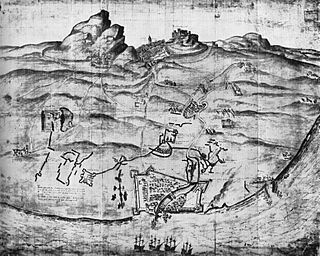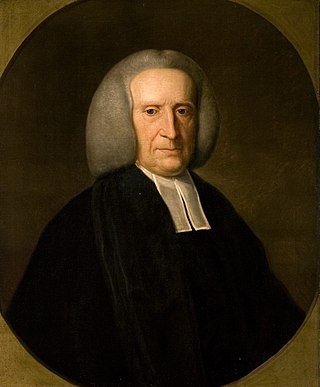Career
He was King's Scholar at Eton College and later educated at King's College, Cambridge, where he graduated B.A. in 1724, M.A. in 1727, and D.D. in 1748. [2]
He was admitted to Gray's Inn in 1720, and appointed tutor to James Cecil, 6th Earl of Salisbury.
He was appointed:
- Rector of Hatfield, Hertfordshire 1737 - 1752
- Rector of Clothall, Hertfordshire 1747 - 1752
He was appointed to the eleventh stall in St George's Chapel, Windsor Castle in 1743, which he held until his death in 1752.
Haynes edited the Hatfield State Papers. [3] William Oldys wrote that he was invited to participate in the edition, but turned down the offer, because papers dealing with the young Princess Elizabeth were being censored. Haynes produced one edited volume, Collection of State Papers relating to Affairs in the Reigns of Henry VIII, Edward VI, Mary, and Elizabeth, from 1542 to 1570. Transcribed from the Original Letters and other Authentick Memorials left by W. Cecill, Lord Burghley, and now remaining at Hatfield House (1740). William Murdin produced two more (1759), running to 1612. [4]
Francis Mallet was an English churchman and academic, and chaplain to Mary Tudor.

The siege of Leith ended a twelve-year encampment of French troops at Leith, the port near Edinburgh, Scotland. The French troops arrived by invitation in 1548 and left in 1560 after an English force arrived to attempt to assist in removing them from Scotland. The town was not taken by force and the French troops finally left peacefully under the terms of a treaty signed by Scotland, England and France.
Thomas Rutherforth (1712–1771) was an English churchman and academic, Regius Professor of Divinity at Cambridge from 1745, and Archdeacon of Essex from 1752.

William Richardson (1698–1775) was an English academic and antiquary, Master of Emmanuel College, Cambridge from 1736.

William Cooke (1711–1797) was an English cleric and academic, Provost of King's College, Cambridge from 1772 and Dean of Ely from 1780.
Richard Wilmot DD (1703–1772) was a Canon of Windsor from 1748 to 1772.
James Denton was a Canon of Windsor from 1509 to 1533 Archdeacon of Cleveland from 1523 - 1533, and Dean of Lichfield from 1523 to 1532.
William King B.D. was a Canon of Windsor from 1572 to 1590
Geoffrey Symeon S.T.P. was a Canon of Windsor from 1501 to 1508 and Dean of Chichester from 1504 to 1508.
Anthony Rushe D.D. was a Canon of Windsor from 1566 to 1577 and Dean of Chichester from 1570 to 1577.
John Wickart D.D. was a Canon of Windsor from 1684 to 1722 and Dean of Winchester from 1693 to 1722.
James Malett B.D. was a Canon of Windsor from 1514 to 1543.
Robert Tyrwhit D.D. was a Canon of Windsor from 1730 to 1742 and Archdeacon of London from 1731 to 1742.
Samuel Pratt was a Canon of Windsor from 1697 - 1723 and Dean of Rochester from 1706 - 1723.
Simon Symonds M.A. was a Canon of Windsor from 1535–1551.
Roger Mostyn was a Canon of Windsor from 1774 to 1775.
William Ermested was a Canon of Windsor from 1554 – 1558 and Master of the Temple.
William Gibson DD was a Canon of Windsor from 1746 to 1754 and Archdeacon of Essex from 1747 to 1752.
Daniel Collins STP was a Canon of Windsor from 1631 to 1648
This page is based on this
Wikipedia article Text is available under the
CC BY-SA 4.0 license; additional terms may apply.
Images, videos and audio are available under their respective licenses.


